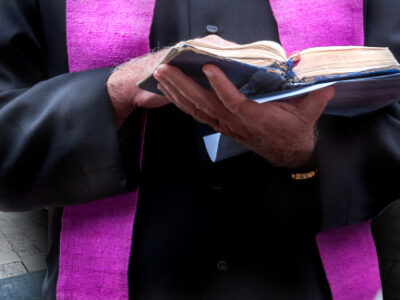The awarding of the Nobel Peace Prize to President Barack Obama demonstrates at least three important points about the current political scene. First, in a one-word Joe Bidenesque fashion, Mr. Obama’s selection can be described as amazing, stupendous, fantastic, and outstanding. Second, Nobel Prize Committee members have shown that they are likely the closest the world will ever get to a globally renowned cabal of unemployed comedians. Third, and more seriously, Mr. Obama’s selection shows the extent to which the verbal culture has triumphed over the action culture among advanced democracies, including the United States.
The differences between verbal culture and action culture are best illustrated in observations made about a century and a half ago by Alexis de Tocqueville in “The Old Regime and the French Revolution.” Tocqueville was impressed by how political theorists cooperated with politicians in the conduct of public policy, in that it was the role of the former to develop ideas that were tested by experiences of the latter. This was much less the case in France, where “precept and practice were kept quite distinct and remained in the hands of two quite different groups.… One took the routine measures appropriate to the needs of the moment, the other propounded general laws without a thought for their practical application.” The radicalism of the French Revolution can be explained to large extent by these differences, in that the philosophers who had not a clue about the workings of government inspired many of its most despicable actions.
America’s Founding Fathers took their British forebears a step further. Those who wrote political theory also created the new constitutional government in which they subsequently served, and, with one notable exception, all died in bed. Such circumstances define the chasm that separates Jefferson from Robespierre, Burke from Paine, and Madison the Father of the Constitution from most political leaders who have served since his time. It is the difference between thinkers who know the limits of politics and politicians who know the limits of thought. In the American founding, the verbal culture merged with the action culture in ways that protected liberties and defined American exceptionalism for over 200 years.
Or for almost two centuries. With the exception of a number of itinerant professors who migrate from academia to government, the verbal culture and the action culture have widened considerably over the past generation or so. This has portentous implications for American civilization, because the two cultures define success in such opposite ways. Examples of action-culture figures include business entrepreneurs, military commanders, and elected officials from closely contested districts. Success is understood in terms of such things as innovation, adaptability to change, profits, mission accomplishment, and re-election. Personal responsibility for one’s behavior is the common denominator; bad ideas that produce adverse results, such as bankruptcy or defeat, mean you’ve failed. You make decisions, you accept the consequences.
The verbal culture exists in an alternate universe, the standards of success for which consist of such things as peer approbation, cleverness, articulation, and tenure. What your words mean is less important than how they are expressed; expressed, that is, in a world bereft of consequences for what you’ve uttered. Thus, battalions of academics may excoriate America without losing their jobs; think-tank gurus supported by rich foundations run wild on the prairie of philosophical lunacies with no thought about their funding drying up. And members of Congress from safe districts spout pieties about fighting “the war of necessity,” saving the planet from global warming or cooling or simply “climate change,” depending on intellectual fashions of the decade, or ordering those in the action culture to engage in destructive economic behavior, such as granting sub-prime loans. None of this results in producing more wealth or improving life-circumstances of ordinary Americans. And it’s all cost-free.
Herein lies the difference in reactions to President Obama’s award: “What has he done?” ask some; “he’s given hope, he’s promised change,” say others. In short, President Obama, a sterling example of the consequence-free cocoon of the verbal culture, has offered the only thing he knows, and that is words. No matter that he’s not seen their implications; he’s not used to that. Expression of laudable intentions is more than sufficient for those who inhabit the verbal culture.
Which brings to mind a statement made by one of the president’s most loquacious forebears from the beginning of the 20th century, the progressive writer Herbert Croly. Like President Obama, Croly dismissed the past and embraced the future, discarded “old politics” and proposed a “new system.” Further, he said, “The fact that the advocates of the new system propose to establish it by methods which might be fatal to civilization must not be allowed to obscure the essential nobleness and humanity of their underlying purpose.”
This is a chilling thought. Still, like Obama, Croly should have received a prize.




